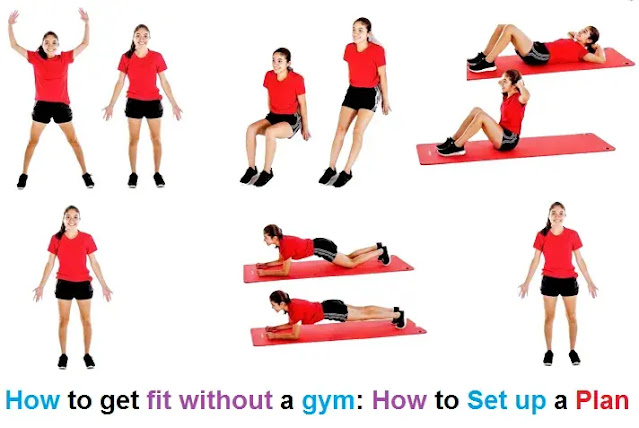When a loved one is seriously ill you may spend much of your time being a caregiver and neglect taking care of yourself. While we are grieving the loss of someone close, we also tend not to take of ourselves; everything can seem meaningless.
Routines such as exercise are especially likely to be dropped during times of extreme stress, yet exercise can improve your emotional ability to cope with life-changing stress.
During the past few decades numerous studies have shown that exercise can decrease levels of anxiety and depression by promoting the increase of the body’s stress fighting hormones.
Exercise can also be an important coping tool when you are undergoing the stress of dealing with a loved one’s serious illness or death.
1- Why Exercise Can Help You Cope
When you are under stress your body prepares to fight the stressor. Adrenaline levels increase and the blood pressure is raised.
These changes are helpful in fighting a short term stressor, such as a confrontation with someone or fleeing from danger, but when adrenaline levels and blood pressure are raised for too long our internal organs can suffer damage.
Under the pressure of coping with the loss or possible loss of someone we love, these stress reactions are likely to go out of control and injure our health, unless we do something to combat them.
Exercise Helps
By exercising we can help reduce the effect of stress on our bodies.
Exercise promotes the release of endorphins—natural hormones that kill pain. The release of extra endorphins promotes relaxation, making you feel less overwhelmed and more likely to get enough sleep.
After merely five minutes of aerobic exercise, endorphins increase. Daily exercise can help you calm your breathing, preventing hyperventilation and lowering your blood pressure.
The differences in dealing with caregiving for an ill loved one and grieving for their loss must be taken in to account when using exercise as a coping tool.
Sometimes the stress of anticipatory grieving accompanies the stress of caregiving and may also need to be dealt with. Grief is often accompanied by bodily changes more severe than those experienced under other types of stress and extra care must be used when increasing physical activity during this time.
2- Tips for Exercising to Help You Cope with a Loved One’s Serious Illness
- If you don’t already have an exercise routine, chose a simple one. Walking is do-able for most everyone. It is possible no matter what your fitness level and can be done without any special clothing. Twenty to thirty minutes of walking every day can help your heart and tone your muscles. Best of all, walking can be done in minute increments; try walking for five or ten minutes at intervals throughout the day, if you don’t have time for full twenty to thirty minute session at one time.
- Develop the habit of stretching periodically throughout the day. This is especially good to do after sitting for a period of time.
- Put on your favorite music and dance to it. Even if you don’t feel in the mood to dance, making yourself do so can help lift your spirits for awhile.
- Joining an exercise class can be a good option if it doesn’t conflict with your schedule. Many hospitals and other health care institutions have support groups for family members of those suffering from serious illness; consider forming an exercise group among the friends you meet in such a group.
- Remember that the exercise you choose is for your own benefit. Don’t treat it as another thing you “must do” or it will simply become another burden that may feel overwhelming
- If you have an exercise routine already in place try to stick with it. Sticking to a familiar routine can be comforting because it gives you a feeling of stability. If you are a caregiver, sticking to a routine may not be possible. Chose other alternatives
- Alternatives to a regular exercise routine include taking a short walk around your neighborhood or around the hospital where your loved one is staying and simple stretching routines.
- Remember that sleep and proper nutrition are just as important as exercise. Exercising heavily when you are suffering from sleep deprivation and an unbalanced diet is not a good option. However, exercising several hours before going to bed can help you sleep better and give you a better appetite if you don’t feel like eating. It can also help you balance your food cravings if you are a “stress” eater.
3- Tips for Exercising to Help you Cope with Grief
- Keep in mind that your body experiences many changes in the aftermath of the death of loved one. You tend to go into a state of shock regardless of how “prepared” you are for the death. This is not to the time to engage in vigorous physical activity, even if you have been used to it.
- Give yourself time to grief and recover somewhat physically before beginning an exercise routine. Get a physical exam to rule out health problems that might prohibit certain activities.
- Be gentle with yourself. You are unlikely to be interested in anything for awhile and that is normal.
- Initially, you will want to choose a simple exercise routine like a daily morning walk.
- With time, you may want to challenge yourself with learning a new physical activity. Learning a new activity can give you something to look forward to.
- When you begin enjoying your new activity, you may actually feel guilty for having fun when your loved one is dead. This is normal, but remember that the person you have lost would want you to continue to enjoy life.
Coping with the loss or possible loss of a loved one is never easy, but exercise can help you maintain your physical and emotional health during this painful period. Chose a do-able activity and begin slowly. You will notice the difference in how you feel in just a few days.
Read more here:





.webp)



.webp)


Social Plugin